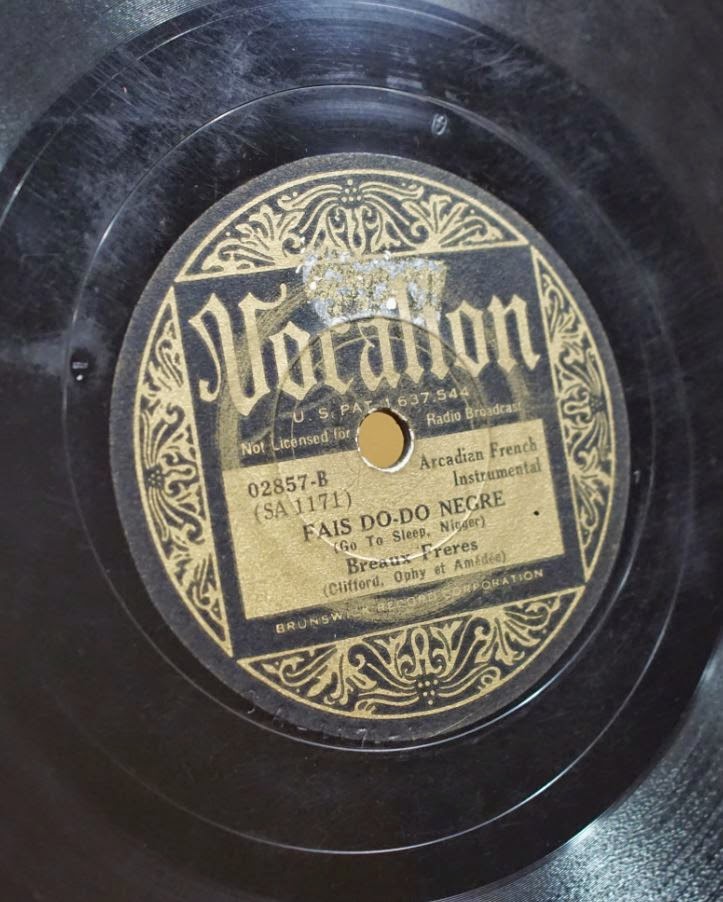Fais do-do, fais do-do mon nègre,
Dans les bras de ta chère vieille maman.
Va donc là-bas, réveille toi,
C’est l’heure d’aller à l’ouvrage.
Hey, vaurien !
Pour la cause tu connais (?)
‘Tit nègre mais chère maman
Réveille-toi, bon matin,
C’est l’heure d’aller à l’ouvrage.
Fais do-do ‘tit nègre,
Dans la bras d’ta mam,
Fais do-do, ‘tit nègre,
Réveille-toi.
Hey, hey.
Réveille-toi ils disent.
The song is a fast paced waltz, casually asking a little boy to sleep in his mother's arms followed by waking him up to go to work. It's one of the earliest Cajun songs to have developed in the prairies. It became one of the most favorite waltzes during the 1920s outside of "Jolie Blonde" and "Allons A Lafayette".3
Fais do-do is also a name for a Cajun dance party, originating before World War II. According to Mark Humphrey, the parties were named for "the gentle command (‘go to sleep’) young mothers offered bawling infants.” He quotes early Cajun musician Edwin Duhon of the Hackberry Ramblers,
“She’d go to the cry room, give the baby a nipple and say, ‘Fais do-do.’ She’d want the baby to go to sleep fast, ’cause she’s worried about her husband dancing with somebody else out there.”
Do-do itself is a shortening of the French verb dormir (to sleep), used primarily in speaking to small children. Comparable to the American English ‘”beddy-bye”, it is still commonly used by French-speaking people. According to author Stivale, "neg" and "negresse" are corrupted forms of the word "negre" which in Cajun french has an endearing meaning such as "hey, my man" or "hey, honey", completely void of racial tones.
Sleep, sleep, my little boy,
In the arms of your dear old mom.
Now, get out there! Wake up!
It's time to go to work.
Hey, ya rascal!
You know the reason,
Little boy, for your dear mother,
Wake up! It's morning!
It's time to go to work.
Sleep, my little boy,
In the arms of your mom.
Sleep, my little boy,
Wake up!
Hey, hey!Wake up, we said!
- https://oldweirdamerica.wordpress.com/2010/08/29/39-home-sweet-home-by-the-breaux-freres/
- Disenchanting Les Bons Temps: Identity and Authenticity in Cajun Music and Dance by Charles J. Stivale
- The Eunice News (Eunice, Louisiana) 30 Aug 1962
Find:
Louisiana Cajun Music Vol. 2: The Early 30s (Old Timey/Arhoolie, 1971)
Cajun Dance Party: Fais Do-Do (Legacy/Columbia, 1994)
The Perfect Roots & Blues Collection (Sony, 2015)




No comments:
Post a Comment
Got info? Pics? Feel free to submit.